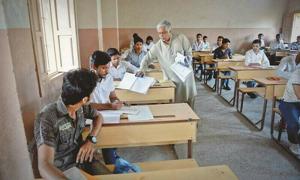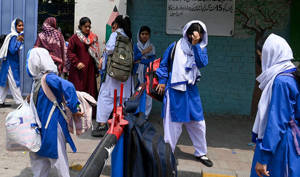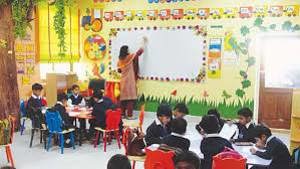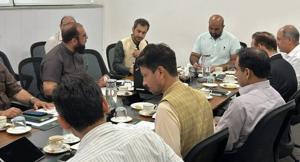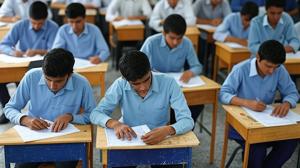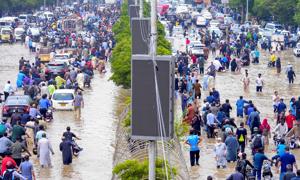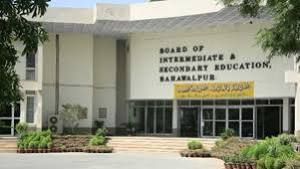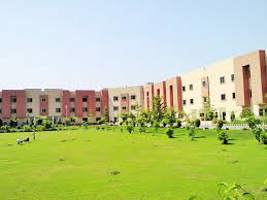The Pakistan Medical and Dental Council (PMDC) is poised to reintroduce the National Licensing Examination (NLE) for all graduates of Bachelor of Medicine, Bachelor of Surgery (MBBS) and Bachelor of Dental Surgery (BDS) programs from both public and private institutions within Pakistan. This significant move is being undertaken to address growing concerns regarding the declining standards of medical education across the country.
A Crucial Step Towards Quality Assurance
The decision to reinstate the NLE, which had previously been abolished, was described as "unfortunate and misaligned with global practices" by PMDC President Dr. Rizwan Taj. He conveyed this sentiment during a session with the Senate Standing Committee on National Health Services. The formal approval of the licensing examination is anticipated to take place at the upcoming PMDC Council meeting, scheduled for July 27. Dr. Taj unequivocally stated that no medical graduate, whether trained locally or abroad, will be permitted to practice medicine in Pakistan without successfully clearing the NLE.
This reinstatement marks a crucial step in the PMDC's efforts to ensure that all medical and dental professionals practicing in the country meet a standardized level of competency and knowledge. The reintroduction of a rigorous licensing examination is a common practice in many developed and developing nations worldwide, serving as a gatekeeper to maintain the quality and safety of healthcare services. By aligning with international norms, the PMDC aims to enhance the credibility of Pakistani medical degrees and the expertise of its graduates.
The previous abolition of the NLE had been a point of contention among medical professionals and educators, with many arguing that it compromised the quality control mechanisms essential for a robust healthcare system. The absence of a standardized exit examination meant that graduates, regardless of the quality of their institution or their individual preparedness, could directly enter the workforce. This led to varied levels of competence among new practitioners, raising concerns about patient safety and the overall reputation of medical education in Pakistan.
Addressing Key Challenges in Medical Education
During the Senate Standing Committee session, lawmakers voiced considerable alarm over several pressing issues within the medical education sector. A significant concern highlighted was the increasing trend of Pakistani students opting for costly medical education abroad due to the limited number of available seats in local institutions. Senator Mohmand specifically pointed out the immense financial burden this places on families, with students often incurring expenses of up to Rs. 7.5 million annually for their overseas studies. Compounding this financial strain is the worrying observation that many of these foreign-trained graduates return to Pakistan perceived as "poorly trained."

Economic Drain and Substandard Training
Adding to this concern, Federal Health Minister Mustafa Kamal revealed a staggering annual loss of nearly $400 million in foreign exchange attributed to Pakistani students pursuing medical degrees overseas. Furthermore, he disclosed that a majority of these foreign-trained graduates ultimately fail the licensing test once they return to Pakistan, underscoring the disparities in educational standards and the challenges associated with integrating them into the local healthcare system. This not only represents a significant economic drain but also raises questions about the efficacy of these overseas programs in preparing students for the realities of medical practice in Pakistan.
Domestic Concerns: Unpaid House Jobs and Unregulated Colleges
Beyond the challenges posed by foreign medical education, the committee also addressed critical issues within the domestic landscape. Concerns were raised regarding unpaid house jobs, a pervasive problem that leaves newly graduated doctors without adequate remuneration for their foundational training period. This not only creates financial hardship for young professionals but can also impact the quality of their learning experience. Additionally, the presence of unregulated medical colleges, particularly in Khyber Pakhtunkhwa, was highlighted as a serious concern, prompting urgent calls for stricter oversight and regulation to ensure that all institutions adhere to established standards.
The NLE: A Comprehensive Solution
The reintroduction of the NLE is therefore not merely a technical adjustment but a multifaceted response to these interwoven challenges. It aims to serve as a quality assurance mechanism, ensuring that all graduates, irrespective of their institution or origin, possess the requisite knowledge and skills to practice medicine safely and effectively. By setting a uniform benchmark, the NLE is expected to incentivize both local and foreign institutions to elevate their educational standards.
Moreover, the NLE is anticipated to play a crucial role in curbing the outflow of foreign exchange and addressing the issue of poorly trained foreign graduates. By making the examination mandatory for all, it will compel prospective medical students considering overseas education to carefully evaluate the quality and accreditation of foreign institutions. This could potentially lead to a more informed decision-making process, discouraging enrollment in sub-standard programs that do not adequately prepare students for the demands of the Pakistani medical profession.
The PMDC's initiative to re-establish the NLE signifies a strong commitment to enhancing the overall quality of healthcare in Pakistan. It is a strategic move that reflects a broader understanding of the challenges facing medical education and aims to implement a comprehensive solution. By ensuring that only competent and qualified individuals enter the medical workforce, the NLE is expected to contribute significantly to improving patient care, upholding professional standards, and restoring public trust in the country's medical and dental professions. The upcoming PMDC Council meeting on July 27 will be a pivotal moment, formalizing a decision that holds immense implications for the future of medical education and practice in Pakistan.

.gif)







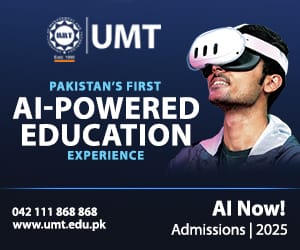


.png)


